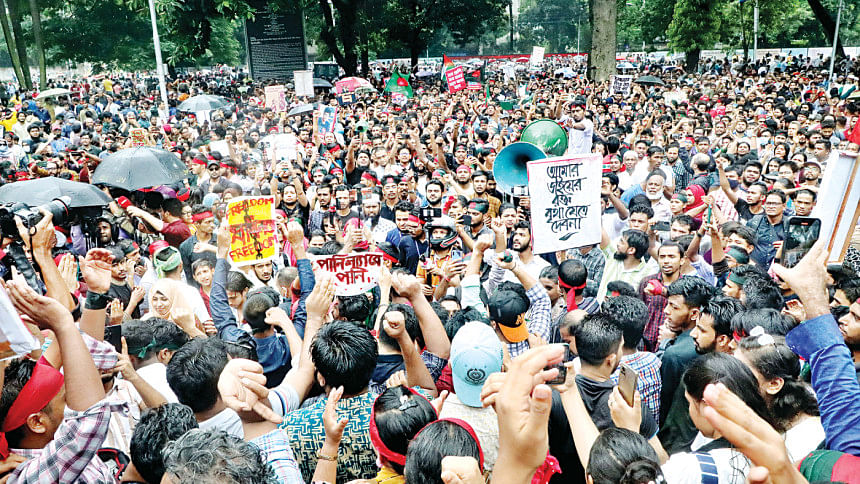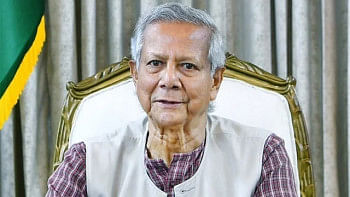August 2, 2024: Nationwide clashes as violence returns

After nearly two weeks of tense calm, Bangladesh once again plunged into violence on August 2, 2024, as widespread clashes broke out between protesters and police -- often aided by ruling party activists -- across multiple districts. At least two people were killed and around 150 injured in a day marked by defiant protests, state crackdowns, and growing demands for justice and accountability.
The violence erupted during processions organised by the Students Against Discrimination in Dhaka, Sylhet, Khulna, Chattogram, Habiganj, Narsingdi, Noakhali, and other districts. Thousands of students, cultural workers, and members of the general public defied rain to demand justice for the victims of recent state violence and the immediate release of detained protesters.
In Habiganj, Chhatra League members and students clashed near the Town Hall. Police intervened with teargas and firearms, leaving at least 50 people wounded. A labourer, caught in the crossfire, was killed.
In Khulna, a police constable died after being assaulted during clashes around Khulna University. Police responded with rubber bullets, batons, and teargas, injuring at least 50 protesters.
In Sylhet, violent clashes between law enforcers and protesters in front of Mount Adora Hospital in Akhalia left over 30 injured, including a child, seven policemen, and several protesters.
Chattogram witnessed a police box being torched at Wasa intersection after Juma prayers, while demonstrations took place on Laldighi-Rifles Club Road.
In Noakhali, at least 10 were injured in clashes near Chawkbazar Masjid. In Narsingdi, Chhatra League, Jubo League, and Mahila League members attacked a protest in Court Road area, injuring 12.
A massive rally titled "Droho Jatra" was held in front of the Jatiya Press Club in Dhaka. People from all walks of life -- students, teachers, guardians, lawyers, civil society members -- gathered, braving rain and shouting anti-government slogans. They announced a mass procession for the following day, demanding the resignation of Sheikh Hasina.
At the rally, Prof Anu Muhammad stated, "We don't want anything from this government. The government must resign. The people must take back control of the country and ensure a democratic transition."
Throughout the capital, protests blocked key intersections -- Uttara, Science Lab, Mirpur-10, Shahbagh, and Aftabnagar. Students of East West University and BRAC University led processions, while performance artists staged street dramas and symbolic protests. Human chains were formed by groups of doctors, urban planners, authors, poets, and teachers demanding an end to the killings, curfew, and arrests.
STATEMENTS OF SOLIDARITY
At least 626 faculty members of BRAC University expressed concern over the violence and reaffirmed students' rights to peaceful protest. Authors and academics condemned the police brutality under the banner of "Poets and Writers Against Countrywide Arrests and Oppression".
In the afternoon, Students Against Discrimination announced a countrywide non-cooperation movement starting the next day, reinforcing their nine-point demand, which includes justice for the July killings, release of detainees, withdrawal of curfew, and resignation of the government.
Meanwhile, the six key organisers of the quota reform movement issued a statement declaring that the video of them withdrawing from the protests had been filmed under coercion while they were in custody at the Detective Branch office.
To control the narrative, the government once again imposed a social media blackout, cutting off Facebook and Messenger services for about seven hours starting around noon.

 For all latest news, follow The Daily Star's Google News channel.
For all latest news, follow The Daily Star's Google News channel. 



Comments